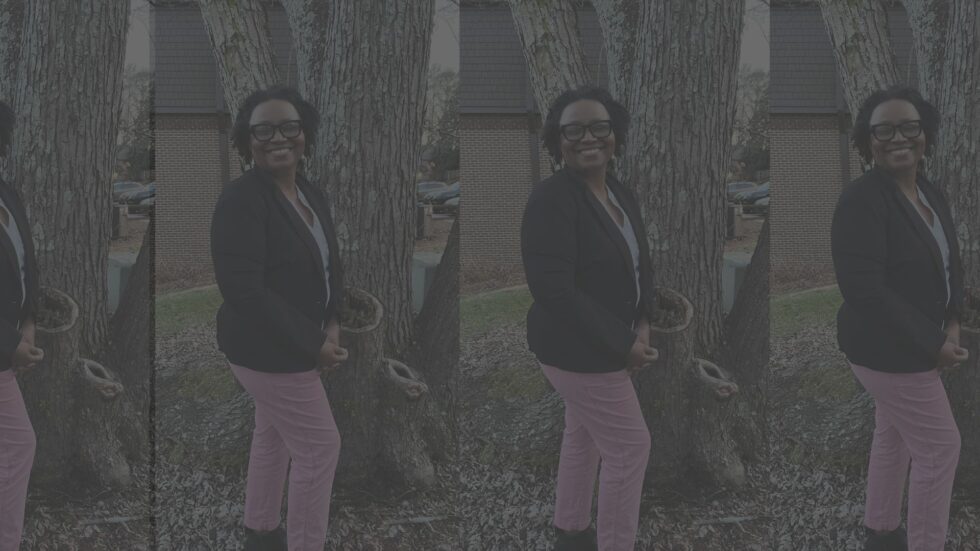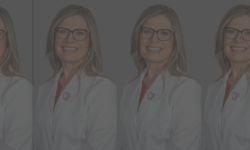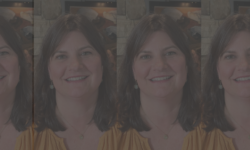
Before Daisy Award Recipient Pauline Guthrie became a nurse, she worked at a bank for several years. Though she had received a degree in business administration from QueensBorough Community College, it was only a matter of time before she would join the career path of her sisters, who were all nurses.
A particularly impactful moment occurred while she was out shopping with her family and one of her sisters ran into her former patient’s husband, who stopped to express his gratitude for her role in taking care of his wife.
“For me, the people I worked with the clients from the bank, they [were] always about their money, their interest … it was just a different thing coming from somebody else like that,” Guthrie said. “I’ve never had anyone come up to me and say, thank you for doing a good job.”
Guthrie left her business career and decided to pursue a career in nursing, a role she has now served in for 19 years.
Education and Training
For Guthrie, nursing school was very different from her undergraduate years, which were more about having fun, leaving home for the first time, and learning new things. Ironically, nursing school required her to apply her expertise in business and finance to her life, since her main purpose was to get her nursing degree as efficiently as possible and begin working to make money.
Conscious of minimizing the expenses of student loans, Guthrie moved in with her sister and helped take care of her sister’s kids in exchange for housing.
“[My sister] was working nights as a nurse .. so I would help her,” Guthrie said. “She would work nights, I [would] get the kids off to school, then I’d come back, cook dinner. So we did that, like an exchange — I help you take care of the kids and I get to stay with you for free.”
One of Guthrie’s most memorable classes was her introductory nursing class, where they went to nursing homes to learn the basics of the profession, such as the bed-making protocol. However, during her first visit there, Guthrie almost fainted from the smell.
“Nursing was a little bit scary at first, because I didn’t like being around sick people — they smell a little bit funny,” Guthrie added.
It wasn’t just the smell of the nursing home, but also others, including the smell of feces. However, when she got back home, Guthrie told her sister about the problem, who directed her to the solution: smelling salts. Guthrie would keep the salt in her pocket and sniff it when the smell made her queasy.
Guthrie noted that, over time, she got used to the various smells.
After graduating from nursing school, Guthrie worked at Emory University Hospital. One of her most memorable moments there was when she met her good friend, Phalary.
Guthrie did not know how to read rhythm strips and the charge nurse was giving her a hard time about it. Another nurse, Phalary, overheard the conversation and offered to teach Guthrie how to read the rhythm strips. Today, this simple act of kindness still tugs at Guthrie’s heartstrings.
Later, Guthrie accepted a nurse manager role at the Northeast Georgia Medical Center Barrow, an experience she described as completely different from being a floor nurse. Most importantly, she was always “on the clock,” and she struggled with disconnecting from all of her responsibilities.
Reflections on COVID-19 and beyond
Finally, Guthrie recalled her experiences as a nurse during the COVID-19 pandemic.
“It was deadlier than the flu, so at first it was scary, because I had all these people that I had to take care of, but I didn’t know what we needed to know to take care of them,” Guthrie added.
Guthrie said that they were not adequately prepared for the materials and space needed to fight the virus. When there weren’t enough gowns for the nurses to wear, they first used cut up trash bags. Eventually, they switched to reusable gowns.
“It was scary, but we had fun,” Guthrie said. “We made it fun. We would take pictures in the trash bags doing all kinds of foolishness.”
Guthrie and her team also faced difficulty finding ways to shuffle positive and negative COVID-19 patients through the hospital. Because the intensive care unit was closed down, their staff developed innovative solutions to rotate positive patients towards the back of the building, and move them to the front as they became negative.
Guthrie is now a nurse manager at Emory University Hospital, which she noted still comes with its own difficulties, including struggling to disconnect from work.
“I know my kids [are] telling me all the time that I spend more time at work than I do at home. And I probably do, ” Guthrie said. “But coming back to Emory, I had to prove myself there because nobody knew me there as a manager before.”
However, her ultimate goal as a nurse manager is to give her staff all the resources so they can be the best possible.
“If some of them are not where they need to be, we work with them, train them to get them to where they need to be so that they can provide the best care to the patients, because they do deserve that,” Guthrie says.
“I think by being the best nurse manager I can be, I have had an impact whereby my team is able to provide the excellent care that the patients deserve,” Guthrie added.







